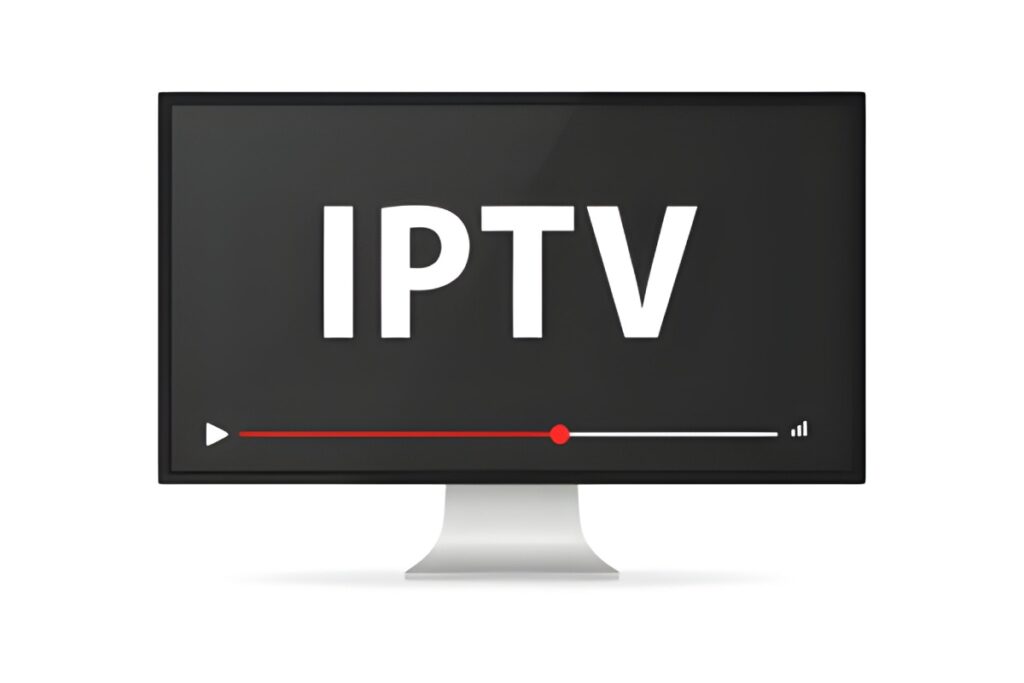What Actually Is an IPTV Service?
Alright, so IPTV stands for Internet Protocol Television. Basically, instead of getting your TV through those old satellite dishes or cable wires, everything flows through your internet. It’s kind of like Netflix, except you get actual live TV channels too.
I made the switch about two years back. The stuff I don’t miss? That bulky cable box collecting dust on my entertainment center. Having to rush home to catch a show at 8 PM sharp. Those contracts that felt like marriage commitments. And paying out the nose for hundreds of channels I scrolled past to find the same ten I actually watched.
How This Internet TV Thing Actually Works
When my buddy first told me about internet protocol television, I figured it was one of those tech things that’d take a PhD to understand. Turns out, it’s pretty straightforward.

Your IPTV provider pushes TV signals through the internet instead of the usual broadcast methods. You need three things: internet that doesn’t suck, something to watch it on (your smart TV, a Roku, your phone, whatever you’ve got), and you gotta pay for the service obviously.
The shows and channels come through as little chunks of data. Your device puts those chunks back together and there you go – you’re watching the game, binging a series, whatever you’re into.
Everyone Asks About Internet Speed
“Do I need some insane internet plan?” Nah, not really. Most live TV streaming runs smooth with 10-25 Mbps depending if you want regular or super crisp quality. I’ve got 50 Mbps and I’m streaming on multiple TVs without problems.
Legal IPTV vs. The Sketchy Underground Stuff
Okay, real talk time. There are legit IPTV services, and then there’s the shady corner of the internet we probably shouldn’t venture into.
The legal streaming services you’ve probably heard of:
- YouTube TV
- Hulu + Live TV
- Sling TV
- FuboTV
- AT&T TV
These guys pay for the content rights. They’re not going anywhere tomorrow, and you won’t wake up to a lawsuit.
Then you’ve got these underground services promising like 5,000 channels for ten bucks a month. Sounds incredible, right? Here’s why I’d steer clear:
It’s not worth the headache:
- They vanish into thin air (with your credit card info)
- Picture quality jumps from decent to potato
- Legally speaking, you’re in murky water
- Good luck finding customer service
- Security? What security?
I got burned once with a “deal” that disappeared after three weeks. Never again. Sometimes cheap costs more in the long run.
What Separates Good IPTV Providers from the Rest
I’ve messed around with maybe a dozen different IPTV platforms at this point. Here’s what actually matters when you’re knee-deep in options:
Channels You’ll Actually Watch
Some companies flex about having 10,000 channels. Great, but am I really gonna watch shopping channels from Bulgaria? I look for services that pack the channels I care about – sports, news, shows I’m into, maybe some international stuff if that’s your thing.
Does It Actually Work When You Need It?
Nothing – and I mean nothing – is more frustrating than the stream dying right when your team’s about to score. A decent internet TV service should give you 1080p at minimum, with more places offering 4K now.
Recording Shows Is a Game Changer
This changed everything for me. Most solid IPTV solutions throw in cloud DVR storage. Record whatever, blast through commercials, watch when I feel like it. Some let you record unlimited stuff, others put a cap on it. Worth checking before you commit.
Works on Whatever You Own
Your service better work on your devices:
- Smart TVs (Samsung, LG, whatever brand you’ve got)
- Those streaming stick things (Roku, Fire TV, Apple TV)
- Your phone and tablet
- Computer browsers
- Even game consoles
I’ve got mine running on a Fire TV Stick downstairs, my phone when I’m traveling for work, and sometimes my laptop when I’m lazy in bed. Being able to switch around matters more than you’d think.
What You’re Really Paying (Not Just the Monthly Bill)
Everyone obsesses over that monthly number, but let’s zoom out a bit.
What you’re actually spending:
- Monthly fee ($35-$80 for the legit ones)
- Maybe a streaming device if you don’t own one already ($30-$180)
- Possibly bumping up your internet speed ($10-$30 extra monthly)
Where you actually save money:
- No more renting their equipment (that was $15 a month for me)
- Nobody’s charging you to “install” anything
- No technician visit fees when something breaks
- Quit whenever without penalty fees
When I did the math, switching to an IPTV service actually put money back in my pocket compared to cable, even after I upgraded my internet.
Getting This Thing Running
This isn’t complicated. People just make it sound harder than it is.
Here’s literally what you do:
- Check your internet speed on Speedtest.net
- Pick a legit provider with the channels you want
- Grab a streaming device if your TV doesn’t have apps built in
- Download their app and log in
- Watch stuff – that’s it
Took me twenty minutes tops, including making an account and putting in my payment info.
When the Stream Keeps Stopping (And Actual Fixes)
Let’s talk about buffering because yeah, internet television can freeze up on you. But it’s usually something you can fix yourself.
Stuff that’s worked for me:
- Unplug your router for 30 seconds (this fixes most problems, I swear)
- Shut down other apps eating your bandwidth
- Plug in with an ethernet cable instead of using WiFi
- Drop the quality down if your internet’s having a rough day
- Get a newer router if yours is ancient
I had constant freezing until I stopped using WiFi for my main TV and ran an ethernet cable. Problem completely gone.
Watching on Different TVs and Devices
Most services let you stream on 2-3 screens at once. Some make you pay more for extra streams. This matters if you’ve got kids or roommates and everyone wants to watch different stuff.
I’m paying for three streams, which covers my wife, me, and usually one extra. Works great for us.
If You’re a Sports Person
Sports fans need to pay extra attention when picking an IPTV provider. Not every service carries every sports channel or local games.
Questions you gotta ask:
- Do they have your local sports channels?
- What about NFL, NBA, MLB if that’s your thing?
- Can you record games with the DVR?
- Can you pause and rewind live sports?
I watch basketball religiously, so making sure I could get all the NBA games was a dealbreaker for me.
The International Stuff Nobody Talks About
Here’s something people sleep on with IPTV streaming: getting international channels is way easier. Whether you want Bollywood, European soccer, or news from wherever you’re from originally, most legit services have international add-ons.
My parents absolutely love this because they can watch channels from back home without some ridiculous separate subscription.
Should You Actually Do This?
Here’s where I land on it. An IPTV service makes sense if you:
- Have internet that’s actually reliable (at least 25 Mbps)
- Want the freedom to quit whenever
- Don’t need every single channel that exists
- Watch TV on your phone, tablet, and TV
- Hate being locked into contracts
Maybe stick with what you’ve got if:
- Your internet is spotty or slow
- Tech stuff stresses you out
- Cable has some specific channel you absolutely need
- You’re getting a killer bundle deal on cable with internet and phone
What I Really Think
Two years later, I’m still glad I switched to IPTV. The flexibility alone beats cable. Saving money is nice too. But it’s not the perfect solution for literally everyone.
The important part is picking a legit provider, making sure your internet can actually handle it, and knowing what you’re paying for.
The IPTV service world keeps changing. New companies pop up, prices keep getting better, features improve. Honestly, it’s a pretty solid time to make the jump if cable’s been annoying you.
Also Read: https://justtechhub.com/unfgaming-net-blog/
